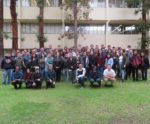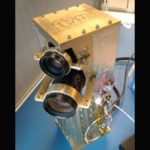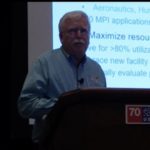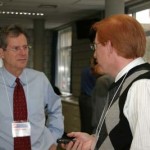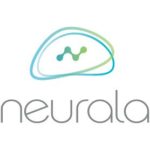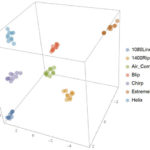In support of NASA’s Planetary Defense Coordination Office, researchers are creating 3-D models and using one of NASA’s most powerful supercomputers to produce simulations of hypothetical asteroid impact scenarios. “Asteroid impacts are one of the only natural disasters we can actually predict and then take action to protect people,” said Michael Aftosmis, an aerospace engineer who leads the ATAP blast wave and ground damage modeling work at NAS.
TACC Powers Climate Studies with GRACE Project
Researchers are using powerful supercomputers at TACC to process data from Gravity Recovery and Climate Experiment (GRACE). “Intended to last just five years in orbit for a limited, experimental mission to measure small changes in the Earth’s gravitational fields, GRACE operated for more than 15 years and provided unprecedented insight into our global water resources, from more accurate measurements of polar ice loss to a better view of the ocean currents, and the rise in global sea levels.”
XSEDE Teams with Cal State for Advanced Computing Training
The need for more young people in STEM careers in a growing concern for the HPC community. Along these lines, more than 70 undergraduate and graduate students participated in the recent XSEDE/DIRECT-STEM training workshops at Cal State LA. “We instruct the students in scientific computing and data science,” said Paul Nerenberg, assistant professor of physics and biology and research advisor for the DIRECT-STEM program funded by NASA. “These are going to be core skills for them in their careers no matter what they do.”
NASA to Launch University of Pittsburgh Supercomputer into Space
A novel supercomputer developed by a University of Pittsburgh team is set to journey to the International Space Station on May 1. The supercomputer will serve as a research “sandbox” for space-based experiments on computing, sensing, image processing and machine learning. “It will be “one of the most powerful space-qualified computers ever made and flown,” said Alan George, department chair of the Swanson School of Engineering’s Department of Electrical and Computer Engineering, who led Pitt researchers and graduate students on the project.”
Evolving NASA’s Data and Information Systems for Earth Science
Rahul Ramachandran from NASA gave this talk at the HPC User Forum. “NASA’s Earth Science Division (ESD) missions help us to understand our planet’s interconnected systems, from a global scale down to minute processes. ESD delivers the technology, expertise and global observations that help us to map the myriad connections between our planet’s vital processes and the effects of ongoing natural and human-caused changes.”
There’s still Time to register for HPC User Forum in Detroit – Agenda targets AI, Autonomous Cars, & Sensor Networks
There’s still Time to register for HPC User Forum in Detroit. The meeting takes place September 4-6 in Dearborn, Michigan. Key topics include AI and other advanced analytics, automated driving systems a.k.a. self-driving vehicles, additive manufacturing and HPC in clouds (and outer space!). “If AI is in your crosshairs, you won’t want to miss the next HPC User Forum in Dearborn, Michigan. Aside from tackling leadership computing initiatives in the U.S. and around the world, the meeting will zero in on artificial intelligence use cases on prem and in the cloud, especially self-driving vehicle development and urban sensor networks.”
Neurala Reduces Training Time for Deep Neural Network Technology
Today Neurala announced a breakthrough update to its award-winning Lifelong Deep Neural Network (Lifelong-DNN) technology. The update allows for a significant reduction in training time compared to traditional DNN—20 seconds versus 15 hours—a reduction in overall data needs, and the ability for deep learning neural networks to learn without the risk of forgetting previous knowledge—with or without the cloud. “It takes a very long time to train a traditional DNN on a dataset, and, once that happens, it must be completely re-trained if even a single piece of new information is added. Our technology allows for a massive reduction in the time it takes to train a neural network and all but eliminates the time it takes to add new information,” said Anatoli Gorshechnikov, CTO and co-founder of Neurala. “Our Lifelong-DNN is the only AI solution that allows for incremental learning and is the breakthrough that companies across many industries have needed to make deep learning useful for their customers.”
Using Ai to detect Gravitational Waves with the Blue Waters Supercomputer
NASA researchers are using AI technologies to detect gravitational waves. The work is described in a new article in Physics Review D this month. “This article shows that we can automatically detect and group together noise anomalies in data from the LIGO detectors by using artificial intelligence algorithms based on neural networks that were already pre-trained to classify images of real-world objects,” said research scientist, Eliu Huerta.
Agenda Posted for April HPC User Forum in Tucson
The HPC User Forum has posted their speaker agenda for their upcoming meeting in Tucson. Hosted by Hyperion Research, the event takes place April 16-18 at Loews Ventana Canyon. “The April meeting will explore the status and prospects for quantum computing and HPC use of HPC for environmental research, especially natural disasters such as earthquakes and the recent California wildfires. As always, the meeting will also look at new developments in HPDA-AI, cloud computing and other areas of continuing interest to the HPC community. A special session will look at the growing field of processors and accelerators supporting HPC systems.”



